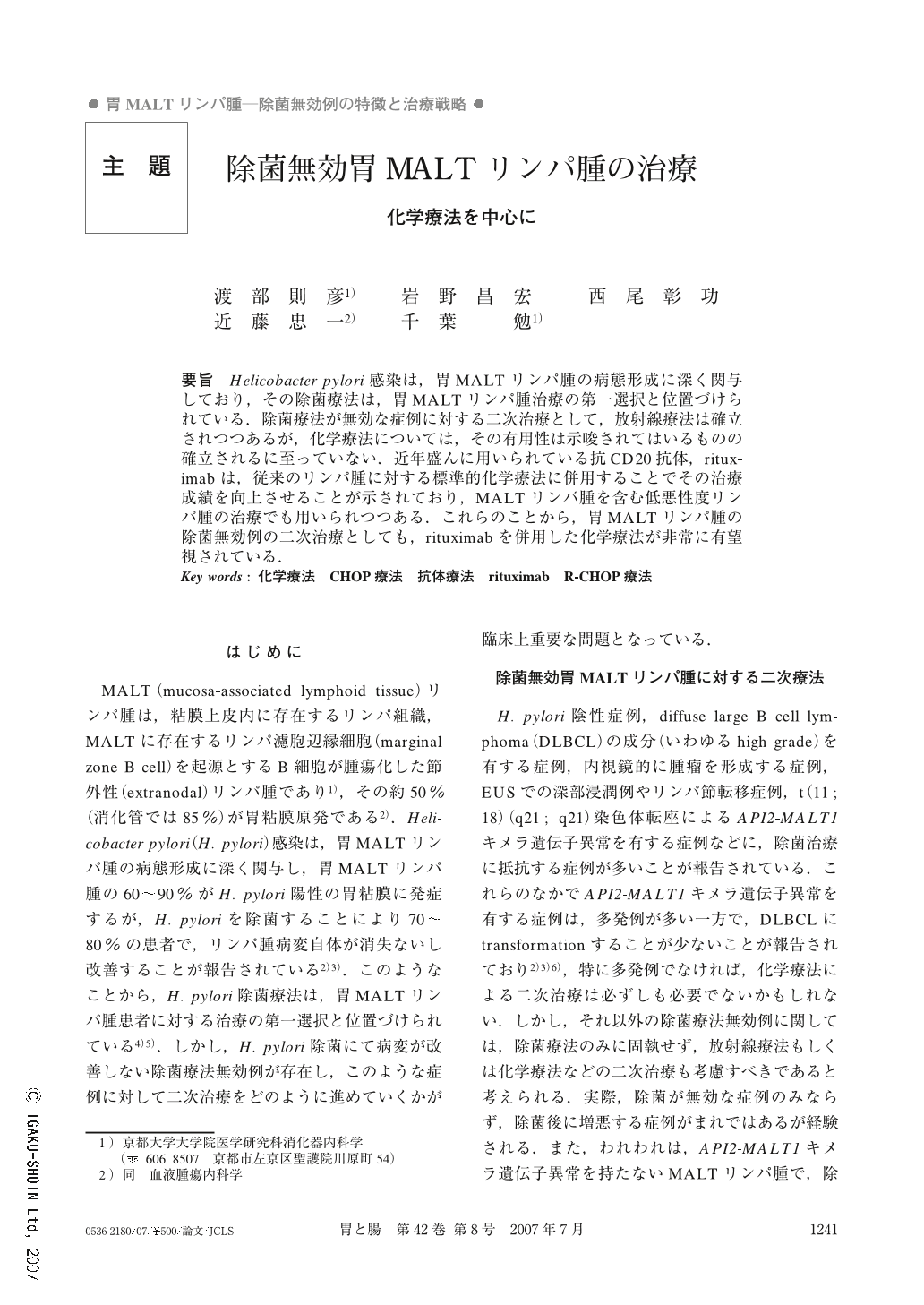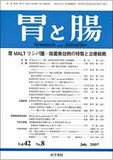Japanese
English
- 有料閲覧
- Abstract 文献概要
- 1ページ目 Look Inside
- 参考文献 Reference
- サイト内被引用 Cited by
要旨 Helicobacter pylori感染は,胃MALTリンパ腫の病態形成に深く関与しており,その除菌療法は,胃MALTリンパ腫治療の第一選択と位置づけられている.除菌療法が無効な症例に対する二次治療として,放射線療法は確立されつつあるが,化学療法については,その有用性は示唆されてはいるものの確立されるに至っていない.近年盛んに用いられている抗CD20抗体,rituximabは,従来のリンパ腫に対する標準的化学療法に併用することでその治療成績を向上させることが示されており,MALTリンパ腫を含む低悪性度リンパ腫の治療でも用いられつつある.これらのことから,胃MALTリンパ腫の除菌無効例の二次治療としても,rituximabを併用した化学療法が非常に有望視されている.
Because low-grade gastric MALT lymphoma frequently develops in Helicobacter pylori (H. pylori)-infected gastric mucosa and the survival of lymphoma cells depends on H. pylori-specific T cells, the first step in treatment is the eradication of H. pylori in localized gastric MALT lymphoma. Although irradiation therapy can cure most of the patients with H. pylori eradication-resistant lymphoma, the optimum chemotherapy treatment for these patients has not yet been established. Anti-CD20 antibody, rituximab and rituximab plus cyclophosphamide, doxorubicin, vincristine and predonisone (R-CHOP) can induce remission of localized lymphomas refractory to eradication, as well as locally advanced and disseminated lymphomas. Therefore, rituximab and/or R-CHOP could be one of the best options for the patients with H. pylori eradication-resistant lymphoma.

Copyright © 2007, Igaku-Shoin Ltd. All rights reserved.


